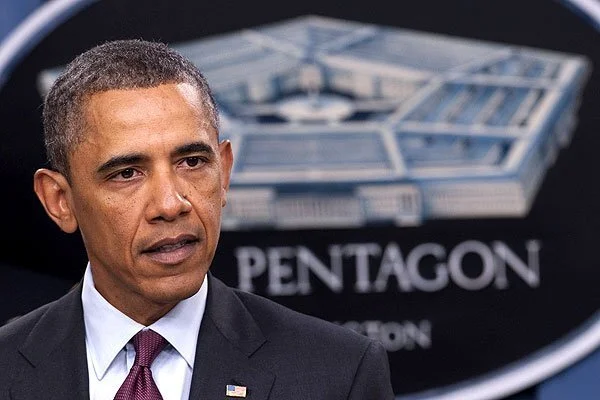An Interview with David S. Cohen on the Treasury’s role in addressing terrorist threats, terrorism financing, and the efficacy of sanctions.
Read MoreAn Interview with Alexander Evans on his career as an academic and diplomat, as well as policy-making and diplomacy in Pakistan, Afghanistan, and India.
Read MoreBy Francis J. Gavin
International relations scholars and foreign policy makers often look at each other’s profession the way a bored spouse might gaze upon a forbidden but tempting lover. To the policy maker, the impenetrable walls of the Ivory Tower seem mysterious and exotic, a place of deep reflection and refined dialogue where they can escape the vicious and politicized battles that often dominate government life.
Read MoreBy Robert Jervis
I have been interested in politics, especially international politics, for as long as I can remember. The times in which I grew up and my personal surroundings were permeated by politics.
Read MoreBy John M. Owen IV
Insofar as I remember my own thinking before I was trained in political science, my natural inclination concerning political life was toward idealism. I tended to believe that ideas—especially political ideas or ideologies—were where the action was, and I assumed that ideologies motivated people more than material interests did.
Read MoreBy Marc Trachtenberg
I started college at Berkeley in 1962 and by the end of my first year there I pretty much knew that I wanted to become an historian, and that in particular I wanted to study the history of international politics. There were times when I was not sure I would actually be able to spend my life in this field, but I did ultimately manage to get a good job and it still strikes me as a little amazing that society was willing to pay me, quite generously in fact, for doing something I really wanted to do.
Read MoreBy Wei Rixin
Whereas ultimately only history will shine light on the details of Bo Xilai's departure, it is safe to say even now that this episode reminds the CPC of the necessity and urgency of initiating overdue political reforms for China's long-term national interest as well as the good of the party.
Read MoreBy Nikolaj Werk
The West urgently has to rethink its understanding of rationality to fully grasp why its continued stricter sanctions on Iran are unlikely to bring about their intended outcome.
Read MoreBy Robert Valencia
Though FARC still poses some degree of threat to the Colombian population, the revolutionary force no longer has the clout it possessed decades ago. The deaths of its rank and file members, its dwindling military power, and mounting rejection from Colombians leave little option for FARC but to reach a peaceful yet uneasy end to the conflict. Otherwise, the Santos administration—and perhaps ensuing administrations—will continue using cutting-edge weaponry that has so damaged FARC while utilizing civilian means to encourage guerrilleros to leave the organization’s ranks and reintegrate into Colombian society.
Read MoreBy Ozge Zihnioglu
Despite their critical rhetoric and diplomatic gestures in protest the West and other Arab countries have failed to put an end to the Syrian leadership’s brutality in the more than a year since the start of the insurgency.
Read MoreBy Dwight Bashir
The Arab Spring has reinvigorated debate about the relationship between religion and state across the Middle East and North Africa (MENA). Missing from the debate is the idea of a “third way” – the full embrace of freedom of religion as a universal right, with a robust competition among various religious perspectives in the marketplace of ideas.
Read MoreBy Sebnem Gumuscu
The Turkish government has been using different instruments, such as democracy promotion, Islamic solidarity, and economic interdependence to foster stability while playing for greater influence over the emerging regimes. Yet this instrumentalism, which benefits Turkey in the short term, unless well-balanced by tangible support from the Turkish state in treating the new regimes as equal partners, may decrease Turkish credibility in the medium to long term.
Read MoreBy Mark Dietzen
Turkey’s state-sanctioned denial of its genocidal past and the hypocritical US failure to speak truthfully about the Armenian Genocide threatens the reputations of both as well as their respective capacities for regional and global leadership.
Read MoreBy Hossein Askari
In the aftermath of the financial crisis of 2007–2008, the fundamental stability of the conventional financial system has been seriously questioned. Excessive leveraging, combined with an inherent asset-liability mismatch, exposes institutions to unsupportable risk, and threatens the overall soundness of the financial system.
Read MoreBy Steven C. Roach
States adopt policies and strategies designed to serve primarily their own national interests. The International Criminal Court’s recent indictments of Omar al-Bashir and Moammar el-Qaddafi highlight growing concerns with some states’ strategies. My aim is to address these concerns as well as the changing, positive dynamics of imposing international justice.
Read MoreBy Oona A. Hathaway, Sabria McElroy, Sara Aronchick Solow
During the first hundred and seventy years of US history, courts generally applied a strong presumption that treaties could be used by private litigants to press their claims. That presumption began to erode in the wake of World War II, and in 2008 the United States Supreme Court effectively reversed it.
Read MoreBy J. Michael Greig and Paul F. Diehl
It is important to recognize the distinctions between the short-term and long-term effects of peacekeeping missions and to understand the ways in which the presence of peacekeepers shapes the incentives of warring sides to reach peace agreements.
Read MoreBy Peter Uvin and Bhaskar Chakravorti
International development agencies have been at work in emerging and frontier markets for decades. Multinational corporations (MNCs) have only in the last decade focused their activities in these areas in anticipation of greater eco- nomic growth there.
Read More












